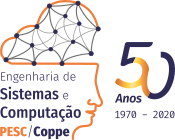Machine Learning for Performance and Power Modeling/Prediction
Profa. Lizy Kurian John (Univ. Texas at Austin)
and
Ultra Low Energy Computation Methods for Implantable Cardiac Devices
Prof. Eugene B. John (Univ. Texas at San Antonio)
 |
|
Machine Learning for Performance and Power Modeling/Prediction
Profa. Lizy Kurian John (UT at Austin)
and
Ultra Low Energy Computation Methods for Implantable Cardiac Devices
Prof. Eugene B. John (UT at San Antonio)
Dia 21/06 (sexta-feira), 10 horas, Sala H-324B
T ransmissão ao vivo no Canal do PESC no Youtube clique aqui
|
Abstract - Machine Learning for Performance and Power Modeling/Prediction:
Estimating the power and thermal characteristics of a processor is essential for designing its power delivery system, packaging, cooling, and power/thermal management schemes. Power models that estimate the power consumption of each functional unit/hardware component from first principles are slow and tedious to build. Machine learning can be used to create power models that are fast and reasonably accurate. Machine learning can also be used to calibrate analytical models that estimate power. In this talk, I’ll present some examples of performance and power modeling using machine learning.
Another application for machine learning has been to create max power stressmarks. Manually developing and tuning so called stressmarks is extremely tedious and time-consuming while requiring an intimate understanding of the processor. In our past research, we created a framework that uses machine learning for the automated generation of stressmarks. In this talk, the methodology of the creation of automatic stressmarks will be explained. Experiments on multiple platforms validating the proposed approach will be described.
Yet another application for machine learning is in cross-platform performance and power prediction. If one model is slow to run real-world benchmarks/workloads, is it possible to predict/estimate the performance/power by using runs on another platform? Are there correlations that can be exploited using machine learning to make cross-platform performance and power predictions? A methodology to perform cross-platform performance/power predictions will be presented in this talk.
Short Bio Lizy Kurian:
Lizy Kurian John is Truchard Foundation Chair in Engineering at the University of Texas at Austin. She received her Ph. D in Computer Engineering from the Pennsylvania State University. Her research interests include workload characterization, performance evaluation, memory systems, reconfigurable architectures, and high performance architectures for emerging workloads. She is recipient of many awards including Joe J. King Professional Engineering Achievement Award (2023), The Pennsylvania State University Outstanding Engineering Alumnus Award (2011), the NSF CAREER award, UT Austin Engineering Foundation Faculty Award, Halliburton, Brown and Root Engineering Foundation Young Faculty Award, University of Texas Alumni Association (Texas Exes) Teaching Award, etc. She has coauthored books on Digital Systems Design using VHDL (Cengage Publishers, 2007, 2017), a book on Digital Systems Design using Verilog (Cengage Publishers, 2014) and has edited 4 books including a book on Computer Performance Evaluation and Benchmarking. She holds 16 US patents and is an IEEE Fellow, ACM Fellow, Fellow of AAAS, and Fellow of the National Academy of Inventors (NAI).
Abstract - Ultra Low Energy Computation Methods for Implantable Cardiac Devices:
The next generation implantable cardia devices are expected to evolve into smart connected devices, in sync with the ubiquitous trend of smart appliances. However, the path to future smart cardiac devices has major challenges that must be addressed. The nature of the application inherently makes the cardiac devices extremely resource constrained with mission critical functional specifications that must be met. Power consumption and functional reliability are the primary factors that govern the design of a cardiac device’s system architecture. Although existing low-power design techniques are efficient and are regularly utilized in modern cardiac devices to meet those goals, they fall short when it comes to solving the computational challenges anticipated in a smart and connected cardiac device. Our research aims to develop ultra-low energy computation methods and design methodologies that can enable future cardiac devices to become a reality. By analyzing the existing and the anticipated new computational workloads of a smart cardiac device, innovative and scalable power-saving design techniques are presented.
Short Bio Eugene B. Johyn:
Eugene B. John received his Ph.D. in Electrical Engineering from Pennsylvania State University. He is currently a Professor in the Department of Electrical and Computer Engineering at the University of Texas at San Antonio. His research interests include, Energy Efficient Computing, Ultra-Low Energy Computing for Implantable Cardiac Devices, Hardware Architectures for Machine Learning and Artificial Intelligence, Computer Architecture, Computer Performance Analysis, Power-Aware and Secure Systems, and Low Power Integrated Circuits and Systems. He has over 160 publications and seven U.S. patents. He was inducted into the National Academy of Inventors (NAI) in 2022. He is a recipient of the University of Texas System Regents’ Outstanding Teaching Award. He served as an Associate Editor for IEEE Transactions on Sustainable Computing (2019-2023) and is currently serving as an Associate Editor for the ACM Computing Surveys.








